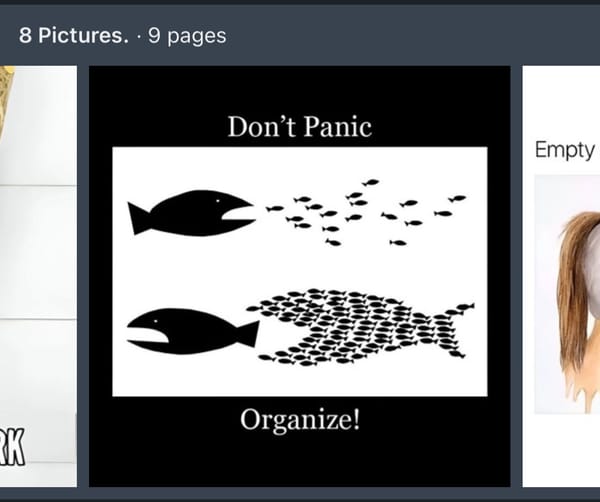The Network State Conference 2025: Briefing and Analysis
The network state concept has evolved from a book in 2022 to a global movement in 2025, VE LAB operates network state 3.0

Executive Summary
The Network State Conference 2025 showcased a movement transitioning from a theoretical concept to a global phenomenon of tangible "startup societies." The central theme is the emergence of internet-native communities that are now actively materializing in the physical world, often in partnership with sovereign nations. These initiatives are propelled by a confluence of macroeconomic shifts, technological breakthroughs in crypto and AI, and a growing demand for alternative governance models.
The Network State Conference 2025: A Brief by VE LAB, assisted by NotebookLLM
Key takeaways from the conference include:
• From Theory to Movement: The network state concept has evolved from a book in 2022 to a global movement in 2025, with dozens of startup societies hosting pop-up villages, building permanent hubs, and attracting thousands of participants and significant capital investment.
• Sovereign State Collaboration: A primary strategy involves partnering with nation-states. Examples include Solana's economic zones in Kazakhstan, crypto-friendly policies in El Salvador, and innovation hubs in Singapore, Dubai, and Abu Dhabi. These partnerships offer legitimacy, physical territory, and legal frameworks, while the network states provide capital, talent, and technological innovation.
• Crypto as Core Infrastructure: Cryptocurrencies and blockchain technology form the financial, legal, and social backbone of these new societies. Stablecoins are viewed as a new form of "banking license," enabling global financial services, while blockchains provide the "code-based order" for everything from corporate registration (DAO LLCs) to identity (ENS/SNS) and governance.
• Macroeconomic Tailwinds: Speakers universally pointed to a global macro environment ripe for disruption. Persistent fiat money printing, geopolitical instability, the decline of the US dollar's dominance in trade settlement, and a broader crisis of "expert failure" in legacy institutions are creating demand for decentralized, resilient alternatives.
• Key Innovation Verticals: Startup societies are focusing on specific frontiers where legacy systems are seen as obstructive. The most prominent are longevity and biotech (leveraging jurisdictions like Prospera for accelerated trials), verifiable and agentic AI, decentralized media and history creation, and building new internet-native capital markets.
• Enabling Technologies and Philosophies: The movement is supported by an ecosystem of tools and ideas, including decentralized social protocols (Farcaster), AI-powered development platforms (Replit), evolving capital formation models (points systems for airdrops), and new legal structures for digital organizations. Philosophically, there is a strong emphasis on voluntary association, technological optimism, and building new cultural operating systems, with some drawing parallels to historical religious networks.
I. The Evolution of the Network State Movement
The conference framed the network state concept as the third major development of the internet age, following internet companies (circa Netscape, 1995) and internet currencies (circa Bitcoin, 2009). Balaji Srinivasan positioned "internet communities" as a new category of entity to start or join, capable of both bootstrapping new cities and augmenting existing states.The movement's trajectory was outlined as a rapid progression:
• 2022: Publication of The Network State book.• 2023: The first public conference in Amsterdam.
• 2024: The opening of Network School on an island near Singapore.
• 2025: The emergence of a global movement with numerous active startup societies.
Presentations from various startup societies provided concrete evidence of this growth, showcasing diverse models and significant traction.
Startup Society | Founder/Presenter | Core Focus & Model | Key Metrics & Achievements |
Forma | Farhaj | Develops Solana Economic Zones (SEZs) in frontier countries through pop-up events and long-term hubs. | Hosted 4 pop-ups; developed 3 long-term hubs; delivered >$5M in FDI; generated >10M impressions on X. |
Edge City | Teimour Coopers | A society incubator hosting month-long pop-up villages for tech, science, and culture. | 7 pop-ups on 4 continents; >11,000 attendees from 80 countries; >$1M in grants raised; >150 kids attended. |
Infinitas | Nicholas Anzinger | A longevity-focused network state with a hub in Prospera, Honduras, focused on biotech acceleration. | Brought >1,500 people to Prospera; funneled >$20M to 100+ startups; launched LIVES token for local economy. |
Switzerland | Isa | Building a permanent Swiss village and accelerator for DAK (Defensive, Decentralized Acceleration) & open-source tech. | Hosted successful proof-of-concept residency; pursuing long-term partnership with a Swiss ski resort (LAAX). |
Oz City | Ali | Pop-up village at the frontier of AI and Web3, operating as a part-bootcamp, part-accelerator. | Launched 20 startups in its first iteration (v1); organized >25 community-led events. |
Liberland | Vit Jedlicka | A 10-year project to form a new country on unclaimed land between Croatia and Serbia. | Nearly 1M citizenship applications; 1,300 official citizens; operating as a DAO government. |
Prospera | Lonis | Offers "governance as a service" via a full-stack legal and regulatory system in its hub on Roatán, Honduras. | Over 300 companies incorporated; over 2,000 paying "Prosperians"; enabled accelerated biotech drug trials. |
EP City | Jean Hansen | A technoptimistic community in Latin America, hosted Brazil's first pop-up city in Florianópolis. | >170 residents/visitors; transacted ~4K in crypto on its platform; incubated two international companies for the Brazilian market. |
Alpha | Bradford Cross | Develops industry-first city templates (AI, Crypto, EV, Aerospace) in Africa. | 8 partner countries underway; 3 signed builds with >100 sq km of land valued at >$1B. |
Arc | James of Arc | A permanent Layer 2 community at Network School focused on supporting frontier founders. | Ran 100+ events in one year; launching founder cohorts and an investment syndicate. |
II. Collaboration with Sovereign States and Jurisdictions
A central theme was the symbiotic relationship between emerging network states and existing sovereign governments. Rather than being purely oppositional, many startup societies are actively partnering with nations seeking economic growth, talent, and innovation.
Direct State Partnerships:
• Kazakhstan & Solana: Farhaj of Forma detailed a formal partnership where the government of Kazakhstan recognized a Solana Economic Zone. This led to tangible outcomes:
◦ The launch of the digital tenge (national currency stablecoin) on Solana.
◦ An MOU with the Astana International Exchange (AIX) to explore dual-listing companies on Solana.
◦ A national hackathon that trained over 1,000 developers on Solana.
◦ A presidential announcement of a national crypto reserve and the development of a physical "crypto city."
• El Salvador: Stacy Herbert, Director of the National Bitcoin Office, highlighted El Salvador's transformation from "homicide capital of the world to Bitcoin country." Key policies to attract tech talent and startups include:
◦ 0% tax for specific industries.
◦ Easy pathways to citizenship.
◦ A streamlined 13-page regulatory framework for AI.
• UAE (Dubai & Abu Dhabi):
◦ Expo City Dubai: CTO Rasheed Muhammad described Expo City as a new special economic zone acting as an "open platform" for startups. The vision is to build a city "Operating System" (OS) to allow for permissionless innovation in urban management, moving beyond siloed, outdated software stacks.
◦ Abu Dhabi Global Market (ADGM): Whim Kuan outlined ADGM's role as an international financial center built on English common law. ADGM was an early mover in regulating crypto (June 2018) and has since developed frameworks for staking, virtual asset lending, and yield-bearing stablecoins, actively using its regulatory sandbox to experiment with policy.
• Singapore: Jacqueline Png, CEO of JTC Corporation, detailed Singapore's long-term industrial policy. While a highly functional state, it seeks to augment its land and manpower limitations through initiatives like the Johor-Singapore Special Economic Zone (SEZ). This SEZ with Malaysia is seen as a "game changer," combining Singapore's capital, connectivity, and innovation ecosystem with Malaysia's land and workforce.
Jurisdictional Innovation:
• Prospera (Honduras): Lonis from Prospera explained its "governance as a service" model, which provides a full stack of common law, regulatory choice, a simple tax system, and private arbitration. This legal autonomy has been a key enabler for biotech innovation, allowing a company to bring a longevity drug to market in months for a fraction of the cost required in the U.S.
• The Marshall Islands: Adam Miller of M-DAO described a public-private partnership that created a new legal entity, the DAO LLC, specifically designed for crypto-native organizations. This was achieved by directly engaging with the island nation's government, which is motivated to innovate digitally due to the existential threat of rising sea levels.
III. Macroeconomic and Geopolitical Context: The "Why Now"
The conference presented a strong argument that current global instability is a primary driver for the network state movement. Several speakers provided frameworks for understanding this shift.
Financial and Monetary Upheaval:• In a fireside chat, Arthur Hayes articulated a deeply bearish view on the fiat system, driven by unchecked money printing to fund government promises without raising taxes. His core advice was to "get your Bitcoin and get out," converting fiat earnings into assets like Bitcoin, gold, or equities and exiting to more stable jurisdictions.
• Hayes and Balaji Srinivasan discussed a major turning point, potentially an 80-year or 500-year cycle, where the global economic center is boomeranging back to Asia.
• Kathleen Tyson, author of Multicurrency Mercantilism, argued the transition away from a dollar-centric world is "real and accelerating." She noted the dollar is down 45% against gold in one year and that wider wars are escalating the flight from the dollar as U.S. deficits grow. She posits a multicurrency world where China is a major trade partner but not a new hegemon.
Geopolitical and Governance Shifts:
• Bruno Maçães, author of Worldbuilders, defined geopolitical power as "God Mode": the ability to enter the control panel of the global system and change its variables, such as when Russia's $300 billion in reserves were frozen. He argued that building the system (e.g., the dollar system) grants this power and that network states represent a move to put power inside the network rather than having it controlled from outside.
• Srinivasan and Hayes discussed the shift from a "rules-based order" (which is increasingly unreliable) to a "code-based order" (where smart contracts and protocols like Bitcoin offer more international reliability).
• Ovic Roy argued that the greatest public policy failures of the 21st century (Iraq WMDs, the 2008 financial crisis, COVID-19 lockdowns) were driven by "expert failure." This creates an opportunity for new, decentralized institutions and network states to succeed where legacy systems have failed, particularly in areas like healthcare, energy, and digital assets.
IV. Core Focus Areas of Startup Societies
While diverse, the presented startup societies showed a convergence around several key verticals where they believe they can offer a 10x improvement over legacy systems.
A. Longevity and BiotechThis was a major recurring theme, positioned as a frontier where regulatory hurdles in developed nations have stifled innovation.
• Infinitas is building a longevity-focused community in Prospera, which offers "medical freedom." They provide access to gene therapies, including one used by Bryan Johnson and the Kardashians. They are expanding to Montana, which has a broad "right to try" law allowing anyone (not just terminally ill patients) to access treatments that have passed safety trials but are not yet FDA-approved.
• Arthur Hayes detailed his personal investment and participation in a stem cell clinic, framing it as taking a necessary "no risk, no reward" approach to pushing the limits of health.• Bryan Johnson emphasized the need for jurisdictions that can create "larger effect sizes" in therapies, moving beyond the FDA's focus on minimizing side effects. He and Srinivasan proposed a "longitudinal diagnostic network state" to gather high-fidelity health data on a cohort to better trial and validate new therapies.
• Andrew Huberman proposed a "human health zone" where environments are engineered for optimal health, suggesting regulations for building lighting to align with human circadian rhythms and the development of real-time cortisol sensors with AI-based feedback.
B. AI, Technology, and InfrastructureAI was presented not just as a tool but as a foundational element for building new societies and economies.
• Replit, presented by founder Amjad Masad, is a platform enabling "vibe coding" where users can program with natural language prompts. He framed this as a massive democratization of software creation, enabling "solopreneurship" and turning anyone into a manager of AI agents. The long-term vision is to program the physical world, starting with robotics and home automation and extending to entire factories.
• EigenLayer, according to founder Sriram Kannan, is building the "Eigen Cloud," a decentralized verifiable compute layer powerful enough to run AI agents, complex games, and social media recommendation algorithms on-chain. This enables "agentic finance" where AI agents can verifiably control capital.• Alpha is building an "AI City" in Africa, leveraging low-cost geothermal and hydro power for massive data centers, coupled with a free-tuition AI university focused on automated research.
• Oz City is a pop-up village specifically for founders building at the frontier of decentralized AI and AI agents.C. Decentralized Governance and New Social StructuresMany projects are experimenting with new models for governance, community, and culture.
• Vitalik Buterin discussed the Zuzalu movement and the "DAK" (Defensive, Decentralized Acceleration) philosophy. This aims to accelerate technology that is open-source, decentralizing, and positive-sum. He identified immigration and visas as a key area for innovation, where reputable network states could vouch for groups of individuals, offering a better signal than nationality.
• Isa of Switzerland is building a "decombinator" as an alternative to Y Combinator for ambitious founders "that don't want to sell out," leveraging Switzerland's 700-year history of decentralized governance.
• Fractal, described by Alexander Grenvag, is a grassroots social fabric spreading across cities like NYC and Boston. It organizes classes and co-working/co-living spaces to recreate a "college campus kind of feel" for post-grads.
• The P2P Foundation's Michel Bauwens proposed "cosmolocalism" (heavy is local, light is global) as a model to connect the coordination capacity of Web3 with local regenerative projects, arguing that crypto must be seen as an ally of local people to avoid rejection.
V. Enabling Infrastructure and Capital Formation
The conference highlighted the critical tools and models being developed to support the network state ecosystem.
Financial Infrastructure:
• Binance & Global South: CEO Richard Tang emphasized crypto's role in promoting financial inclusion, noting that 1.4 billion people remain unbanked. In countries with hyperinflation and low financial access, crypto and stablecoins provide a superior means for payments, remittances, and wealth storage.
• Stablecoins as a New Banking System: Multiple speakers, including Balaji Srinivasan and Arthur Hayes, described stablecoins as a new "banking license." Unlike traditional bank wires within a locked network, anyone can create an address to receive stablecoins, fundamentally unbundling banking services and reducing many financial functions to mere packet transfers.
• Base: Zen from Base (a Coinbase L2) positioned the platform as the infrastructure for a "new global economy." He mapped Base's progress against the definition of a network state, highlighting its social network, moral innovation, and growing on-chain economy ($12B in assets, $4B in stablecoins, >$1B in app revenue).
• Ton & Telegram: Veronica from Ton Strategy Company described Telegram's ecosystem of over 1 billion users as a potential network state. The TON blockchain provides the financial rails for a global super app, with a native wallet, mini-apps, and digital assets like usernames.
Capital and Talent Formation:
• Token Distribution Evolution: Haseeb Qureshi of Dragonfly outlined the historical progression of token distribution models: Proof of Work -> Proof of Stake -> ICOs -> Airdrops -> Points. Points systems are the current meta, allowing projects to dynamically reward desired behaviors over time before a final token conversion, mitigating the problem of professional "airdrop farmers."
• 1517 Fund: Danielle and Michael Gibson presented their thesis of "shorting the higher education bubble" by funding young "mutants" who drop out of school. Their work, which began with the Thiel Fellowship, has backed founders of companies like Ethereum, Figma, Loom, and Luminar, demonstrating a successful alternative pipeline for converting talent into capital.
• AngelList: Avlok Kohli described building AngelList Cafe, a physical space for founders, as a direct influence of the network state concept, recognizing the need to bring the digital founder community into a physical hub to foster energy and connection.
Social and Identity Infrastructure:
• Farcaster: Co-founder Dan Romero described Farcaster as a "decentralized social network" and "Legos for building social networks." As a permissionless protocol, it allows applications like Coinbase's Base app to integrate a social graph without central approval. Its support for "mini apps" makes it a programmable social layer, positioning it as a "proto network society."
• Passportal: Parag Khanna introduced the concept of the Passportal, an "identity as a service meets mobility as a service" platform. It aims to create a secure blockchain ID wallet where individuals own their identity, streamlining the "over-bureaucratized dimension of globalization" and more effectively matching global labor supply and demand.
VI. The Role of Media, History, and Culture
A final key theme was the importance of building a new culture and narrative, with AI and decentralized media presented as powerful tools for this purpose.
• Decentralizing History and Media:
◦ Nas Daily (Nuseir Yassin) demonstrated how new AI video tools (Vidu, Sora) are "decentralizing Hollywood." He is using AI to recreate historical events in compelling one-minute videos, turning boring textbook stories into viral content. He argued that AI doesn't take jobs, but rather "lets you do any job," enabling "solopreneurship" on a massive scale.
◦ BeerBiceps (Ranvir Allahbadia) spoke about the shift in content creation towards raw, documentary-style content and the democratization of fiction film production via AI. He plans to build a community focused on yoga, meditation, and ancient Indian knowledge.
• Religion as a Cultural OS:
◦ Pascal-Emmanuel Gobry argued that monotheism was the "first network state," creating transnational networks unbound by tribe or geography. He positioned the Catholic Church as a "network of network states" that provided the cultural operating system (asabiyyah) for Western civilization, creating everything from international banking to the limited liability company.
◦ Aaron Renn framed the history of American Christianity as a decline through "positive," "neutral," and "negative" worlds. In response, Christians have started creating "proto-network state" communities (e.g., in Moscow, Idaho; St. Mary's, Kansas), but they currently lack a connecting virtual network and an integrated cryptocurrency.
• Decentralized Identity and Reputation:
◦ From reddit, Punk6529 argued that the proper metric for a network state is GDP and that the key challenge is making subjective decisions in a decentralized manner. He believes NFTs are better suited than fungible tokens for expressing the necessary concepts of identity, reputation, and alignment required for state-level decision-making.
◦ Zcash, presented by Josh Wyhart and Zuko Wilcox, was framed as "unstoppable private money" for the "kingdom of the sovereigns." They argued that privacy is not about hiding but about freedom of expression and agency, as behavior changes when it is perpetually observed on a public blockchain.
Privacy is the necessary foundation for a free society.
A NotebookLLM assisted report, requested by Alet Viegas.





